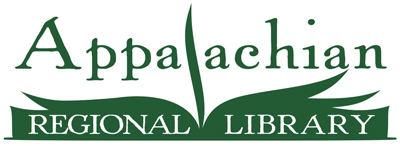All Appalachian Regional Library locations will be closed on Monday, February 2nd due to the winter weather.
Wilkes County Blog
 Stand for the Banned and Support FREADOM
Stand for the Banned and Support FREADOM
Books Unite Us. Censorship Divides Us.
Sunday, 26 September 2021 22:42Wilkes County Public Library is recognizing Banned Books Week September 26 – October 2. This time of year reminds us that ‘freedom to read’ is supported by the Bill of Rights’ First Amendment.
The American Library Association (ALA) actively advocates and educates in defense of intellectual freedom—the rights of library users to read, seek information, and speak freely as guaranteed by the First Amendment. Intellectual freedom is a core value of the library profession, and a basic right in our democratic society. A publicly supported library provides free, equitable, and confidential access to information for all people of its community.
You may wonder why books are banned, and who is doing the banning. Last year ALA’s Office for Intellectual Freedom tracked 156 challenges in 2020. Not all these challenges were for books. Some of these attempts at censorship were in response to disagreements with films, displays or photos, social media, and programs or meetings. There are many varied reasons for these challenges, but leading the list are topics addressing Black Lives Matter, anti-racism, anti-police, LBGTQIA+, religious viewpoints, and political viewpoints.
Nearly half of all challenges happen in public libraries, other instances take place in schools, school libraries, and academia. As far as who is initiating the challenges, 50% of the objections come from parents. Sometimes political/religious groups or other patrons speak out against materials they deem to be harmful. It is not unreasonable for parents to monitor their own child's reading, but it is troubling for anyone to impose their beliefs on others.
New York Times bestselling author, Jason Reynolds, has been named the inaugural Honorary Chair for Banned Books Week 2021 by The Banned Books Week Coalition. Reynolds is the author of more than a dozen books for young people, including All American Boys (with Brendan Kiely), Ghost, Long Way Down, Look Both Ways: A Tale Told in Ten Blocks, and Stamped (with Ibram X. Kendi). A multiple National Book Award finalist, Reynolds has also received a Newbery Honor, a Printz Honor, an NAACP Image Award, and several Coretta Scott King Award honors. He is currently serving a two-year term as the National Ambassador for Young People’s Literature for the Library of Congress.
As an advocate for storytelling and an outspoken critic of censorship, Reynolds is the perfect person to headline Banned Books Week 2021, which has the theme, “Books Unite Us. Censorship Divides Us.” For young people in particular, books offer both shared and differently lived experiences that help them develop empathy and understand themselves and their world. In turn, censorship isolates us from each other by narrowing our view of the world.
“I’m excited about being the inaugural Honorary Chair for Banned Books Week,” says Reynolds. “More importantly, I’m excited about this year’s theme, which is so simple, yet so powerful. What does it mean when we say, ‘Books unite us?’ It means that books are the tethers that connect us culturally. Stories ground us in our humanity; they convince us that we’re not actually that different and that the things that are actually different about us should be celebrated because they are what make up this tapestry of life.”
Stop by Wilkes County Public Library and check out the ‘secret’ banned books on display. Share your feelings about whether you agree or disagree with the reasons for concern. On behalf of our local librarians, we hope you will see that books, can foster empathy, engage readers, heal, build community, open doors, encourage conversations, change lives, inspire creativity, inform, empower, and enlighten minds.
